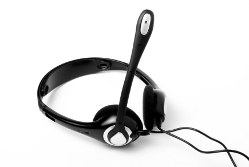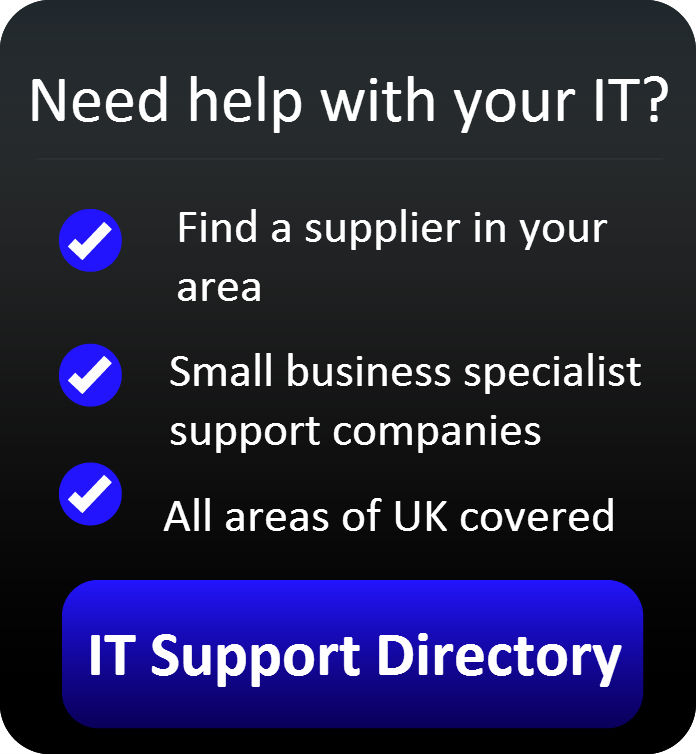Lower your phone bill with VoIP
 Voice over internet protocol (VoIP) services - also known as IP telephony - are a kind of business telephone system where calls are made over the internet instead of using traditional telephone lines. This means that using VoIP can be cheaper and more flexible than a traditional telephone system
Voice over internet protocol (VoIP) services - also known as IP telephony - are a kind of business telephone system where calls are made over the internet instead of using traditional telephone lines. This means that using VoIP can be cheaper and more flexible than a traditional telephone system
How does VoIP work?
VoIP allows you to place telephone calls you would normally make on a phone line over the internet. You will need a good, reliable internet connection and VoIP-enabled telephone handsets.
The handset or headset converts your voice into digital signals which can be transferred across the internet.
You will also need a business VoIP/IP telephony provider. They should be able to set your business VoIP system up for you. This usually involves a one-off set up charge, then a monthly charge for your business VoIP number.
If you decide to use business VoIP, you can still call normal telephones. And people using normal telephones can call you. You get a standard telephone number, just like everyone else.
Why use VoIP?
Companies are usually first attracted to VoIP by the prospect of reduced costs. All calls made within a VoIP network are usually free. That means you can place internal calls for nothing. And you usually pay nothing for external calls to other VoIP users on the same network as you.
Calling regular telephones can also be cheaper with VoIP. Savings are usually greatest when you make international calls.
However, VoIP is also very flexible. People in your business can use ‘softphones’, which allow them to plug a handset in anywhere and make calls from their main business number. All they need is an internet connection.
VoIP means you can dial from your office number, even if your office is in London but you’re currently in Glasgow.
The same is true for receiving calls. With a softphone, calls come to you, wherever you are. Callers don’t need to know your location. You can even redirect your number to another telephone – like your mobile or a foreign number.
VoIP can form an important part of your disaster recovery plan. Because you can redirect calls at will, you can keep on using the same numbers, even if there’s a disaster which puts your company HQ out of action. All you need is an alternative location with an internet connection.
VoIP options
There are two main types of VoIP:
- Direct VoIP services create a connection across the internet between two people. Skype and Vonage are good examples. Direct VoIP often works out much cheaper than using a normal phone line for international calls, but usually involves placing a call via a headset connected to a computer.
- Integrated VoIP services allow people in your company to place VoIP calls using a telephone handset which routes calls across the internet. This means your staff don’t have to learn a new way of doing things, because it's just like using any other telephone. Integrated VoIP services also include functions like voicemail.
Physical or hosted VoIP?
Integrated VoIP services are most commonly used in business. They come in two flavours:
- With a physical switchboard. This type of VoIP service involves installing a switchboard into your premises. Physical switchboards cost money to buy and maintain.
- With a hosted switchboard. This type of VoIP service is sometimes called hosted VoIP. The physical switchboard is replaced by software running on a network server, which is usually located off your premises and maintained by another company.
With hosted VoIP, you plug your phones into your computer network. When you make a call your voice travels down your internet connection. This means you don’t need any phone lines (reducing line rental costs), but you do need a fast broadband connection.
Once the number of phones in your business rises above a certain number (around 20), then a physical switchboard will generally prove more cost-effective. But beneath that number of phones, a hosted VoIP system will usually offer better value.
VoIP system costs
Because a hosted VoIP system relies on software running on a server, it offers a greater set of services than a physical switchboard ever could. It’s always up to date and your VoIP supplier will take care of maintenance.
Setting up a hosted VoIP system is usually cheaper and easier than installing a physical switchboard too. However, it is dependent on having a good internet connection. If that goes down, so does your telephone system.
In either case, the cost of individual calls is decided by your service provider. If you have a physical switchboard, then they may be paid to a telephone company like BT. If you run a hosted VoIP system, you pay all charges to the company which provides the system.
It’s often hard to work out exactly how much line rental and call charges will cost you. Look for a company with a clear pricing policy and structure.
If you opt for hosted VoIP, you should be able to call people who are on the same network for free. This can translate into big savings if your business makes a lot of inter-office calls.





